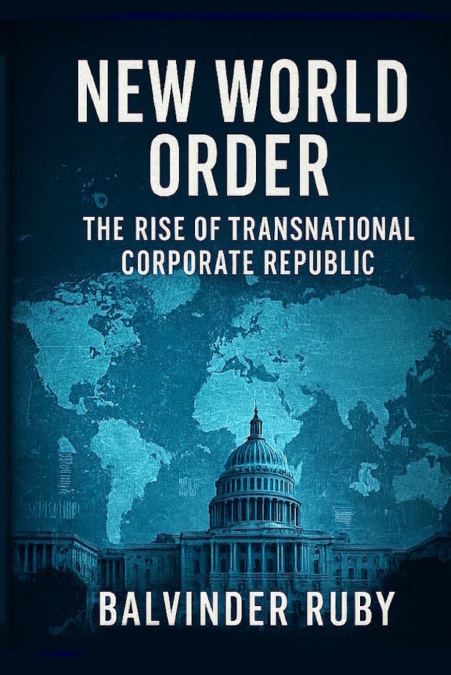
Balvinder Ruby
This book makes an effort to examine and comprehend the post-World war political, economic, and strategic developments that resulted in the transfer of power from the United Kingdom to the United States of America. Two parallel politico-economic and ideological models emerged and prevailed during the Cold War era, the liberal democratic capitalistic model led by the US and the communist, socialist model led by the erstwhile Union of Soviet Socialist Republic (USSR) confronting each other as ideological and military rivals through alliances NATO and Warsaw Pact maintaining a balance of power. Though a third Non-Aligned Movement (NAM) bloc also played a role to some extent in maintaining the power balance, The fall and disintegration of the USSR led to a unipolar world with the US at the helm of affairs as the sole arbitrator of geopolitical and economic order at the global level. In their bid to seek markets in third-world countries for their products, the US and other western countries conceptualised and promoted the idea of globalisation. Globalisation resulted in two unintended consequences. Firstly, the manufacturing moved largely to China, making it a global manufacturing hub; secondly,the services industry shifted to Third World countries like India, made possible by the model of outsourcing and advances in information technology and telecommunications. Losing the manufacturing and services sectors weakened the West’s and the US’s hegemonic dominance. As a result, the US no longer remains the sole superpower, as China has caught up with it in terms of economic power. When the global supply chain from China broke down during the COVID-19 pandemic, it became painfully clear that the world depended on China for almost all manufactured goods. In this changing scenario, transnational corporations try to reap benefits and grow their clout by strategically shifting their manufacturing and marketing bases.The primary purpose of this book is to understand how this new dynamic will pan out against the backdrop of the gradual decline of the democratic model of governance over time and how the insidious rise of transnational corporations in power is going to reshape the emerging new world order.